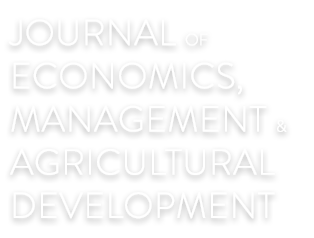Authors
ABSTRACT
This paper aims to demonstrate the important role of cooperatives in the provision and delivery of potable water to a community of households based on evidence from a case study of Talaga Barangay Water Service Cooperative (TBWSC) in Tanauan, Batangas. TBWSC is a water service type of cooperative that successfully provides its members with access to potable water. The case shows how social capital works in addressing a common need. Particularly, it presents the collaborative partnership between the government and the cooperative in implementing a waterworks project. The factors contributing to the success of water service delivery are the felt need of the community to have potable water, access to financial and human resources, presence and commitment of the cooperative and government as collaborating groups, and the participatory approach to organization and management of the cooperative in providing potable water to the community. As a water service cooperative, TBWSC is successful based on its financial performance and achievement of its mission and goals.

